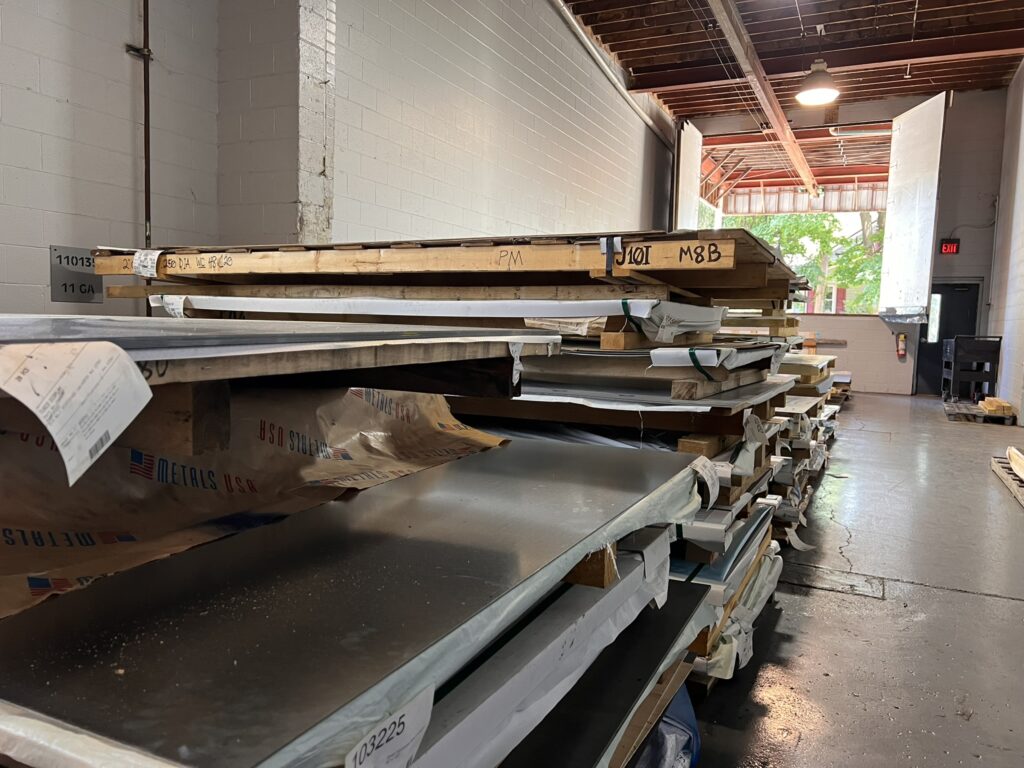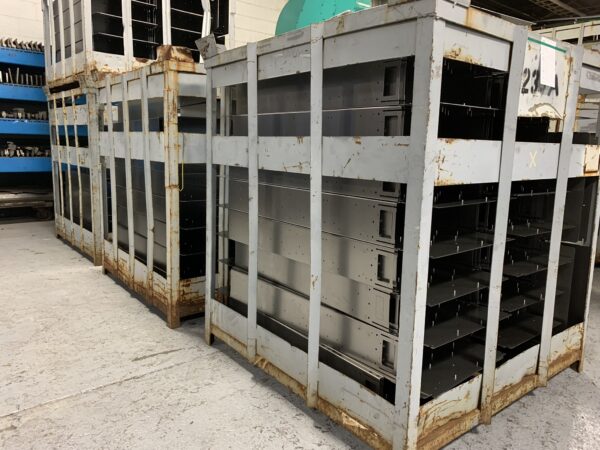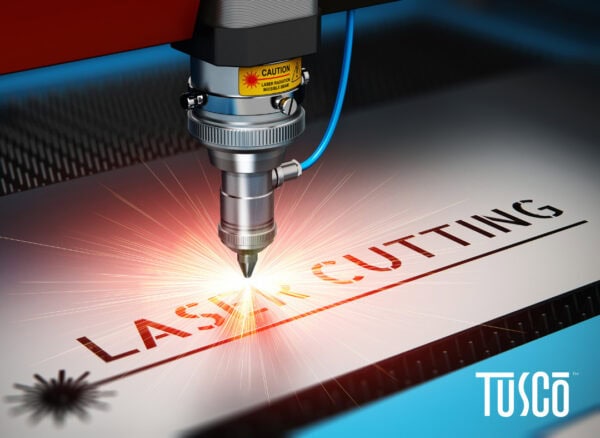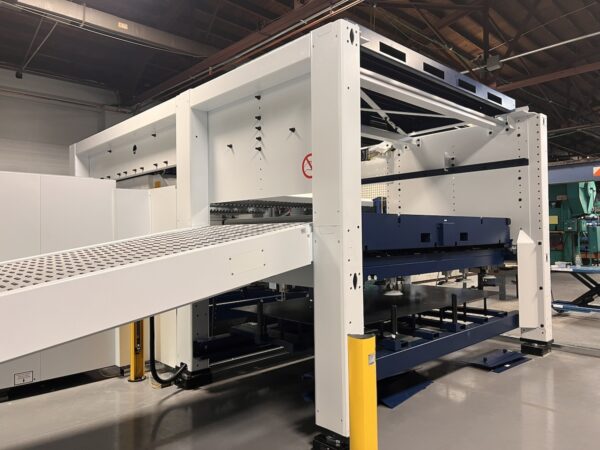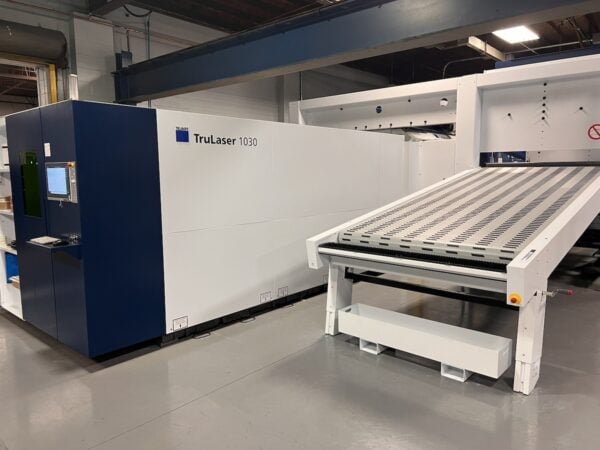The food equipment industry, a broad sector that includes processing, packaging, and service equipment, is integral to bringing food from the production line to the consumer. This industry covers everything from processing and preprocessing to packaging (including filling, bottling, case cartoning, labeling, and palletizing) and service equipment like cooking and preparation, refrigeration, ware washing, and storage and handling. Valued at approximately $107 billion in 2023, the global food processing and handling equipment market is projected to grow at a compound annual growth rate (CAGR) of 5.5% from 2023 to 2030.
As with many industries, the food equipment sector is evolving rapidly in response to changing consumer needs, technological advancements, and economic and environmental pressures. In this context of constant change, sheet metal fabrication is particularly well-suited for the industry’s unique demands.
Applications for Sheet Metal Fabrication
Sheet metal fabrication is ideal for both time-tested applications and cutting-edge innovations, offering the versatility and reliability needed to meet the demands of any food equipment design. Some of the common uses include the following in each segment.
Food processing equipment, including:
- Conveyor systems—Sheet metal is used to fabricate the frames, guards, and panels for conveyor belts that move food products through different stages of processing.
- Mixers and blenders — Stainless steel sheet metal is commonly used for the construction of mixers and blenders to ensure durability and compliance with hygiene standards.
- Cutting and slicing machines — Blades, housing, and protective covers for machines that cut, slice, or dice food products are often made from precision-cut sheet metal.
Packaging equipment, including:
- Filling and machines — Components such as frames, hoppers, and chutes are made from sheet metal, ensuring the equipment can handle the demands of filling and sealing products while maintaining cleanliness.
- Labeling and cartoning machines — The structural elements and protective enclosures for labeling and cartoning machines are fabricated from sheet metal to provide durability and precision.
- Palletizing systems — Sheet metal is used to create sturdy frames and moving parts for machines that stack and organize products for shipment.
Food Service Equipment, including:
- Cooking equipment — Ovens, grills, fryers, and other cooking appliances feature sheet metal fabrication for their exteriors, racks, and internal components, designed to withstand high temperatures and frequent use.
- Refrigeration units — Refrigerators, freezers, and coolers use sheet metal for their structural components and shelving, ensuring they are strong, easy to clean, and corrosion-resistant.
- Preparation tables and stations — Stainless steel sheet metal is used to manufacture preparation tables, cutting boards, and workstations essential in commercial kitchens, offering a hygienic and durable work surface.
- Ware washing equipment — Dishwashers and sinks are often made from sheet metal, designed to resist corrosion and facilitate easy cleaning and sanitizing.
- Shelving units and racks — Fabricated from sheet metal, these are used to store ingredients, tools, and other kitchen essentials in an organized and sanitary manner.
- Storage bins and containers — Sheet metal is used to create durable, easy-to-clean containers for storing bulk ingredients and prepared food items.
- Carts — Carts made from sheet metal are used to transport food and equipment around processing facilities or commercial kitchens.
- Guarding and enclosures — Sheet metal is used to fabricate safety guards and enclosures for various equipment, ensuring that machinery operates safely and complies with industry regulations.
- Ventilation hoods — Sheet metal is often used to fabricate ventilation hoods in kitchens and processing areas to control smoke, steam, and odors while maintaining air quality.
- Modular equipment — Sheet metal can be used to create modular systems that can be easily assembled, disassembled, or reconfigured to adapt to changing production requirements.
The vastness of these applications highlights how integral sheet metal fabrication is to the food equipment industry and in ensuring that the equipment meets the rigorous demands of food safety, durability, and efficiency.
Benefits of Sheet Metal Fabrication For The Food Equipment Industry
As one of the primary manufacturing methods for food equipment, sheet metal fabrication’s versatility, durability, and ease of fabrication make it an ideal material for a wide range of applications within this industry. Whether it’s stainless steel, aluminum, or other metal alloys, sheet metal is used extensively to create components essential to food equipment’s functionality, hygiene, and safety.
Hygiene and cleanability — One of the primary reasons sheet metal is favored in the food equipment industry is its ability to meet stringent hygiene standards. Stainless steel, in particular, is widely used due to its corrosion resistance and ease of cleaning. Equipment that must withstand frequent washing and sanitizing without degrading or harboring bacteria is often made from stainless steel. Stainless steel is available in different alloys and finishes, and some may not be compatible with caustic or acidic foods or cleaners. It is critical to ensure a proper grade is used.
Durability and strength— Sheet metal is also valued for its strength and durability. Food equipment must endure rigorous daily use, from processing large volumes of food to withstanding high temperatures in cooking environments. Sheet metal provides the necessary robustness to handle these demands, ensuring that equipment remains reliable and long-lasting. For example, sheet metal is used in the construction of ovens, refrigeration units, and heavy-duty food processing machinery, where structural integrity is critical.
Customizability and precision — The food equipment industry often requires custom solutions tailored to specific processes or products. Sheet metal fabrication allows for high levels of customization, enabling manufacturers to create equipment that meets exact specifications to ensure that each piece of equipment functions optimally in its intended role.
Cost-effectiveness— While durability and customizability are essential, the cost-effectiveness of sheet metal is another significant advantage. The ability to produce high-quality components at a reasonable cost makes sheet metal an attractive option for food equipment manufacturers. This is especially crucial in an industry where margins can be tight and cost control is a priority.
Environmental considerations — Finally, sheet metal fabrication aligns well with the growing emphasis on sustainability in the food equipment industry. Metals like stainless steel are recyclable, reducing the environmental impact of manufacturing. Additionally, efficient fabrication processes minimize waste and energy consumption during production.
TuscoMFG is A Trusted Partner for the Food Equipment Industry
We have the equipment, experience, and resources to deliver food equipment components ranging from complex assemblies to simple components. As your sheet metal fabricator, we will fabricate your components and assemblies, complete-to-print, and aim to deliver them on time with a lower total cost. Contact us to learn more.

